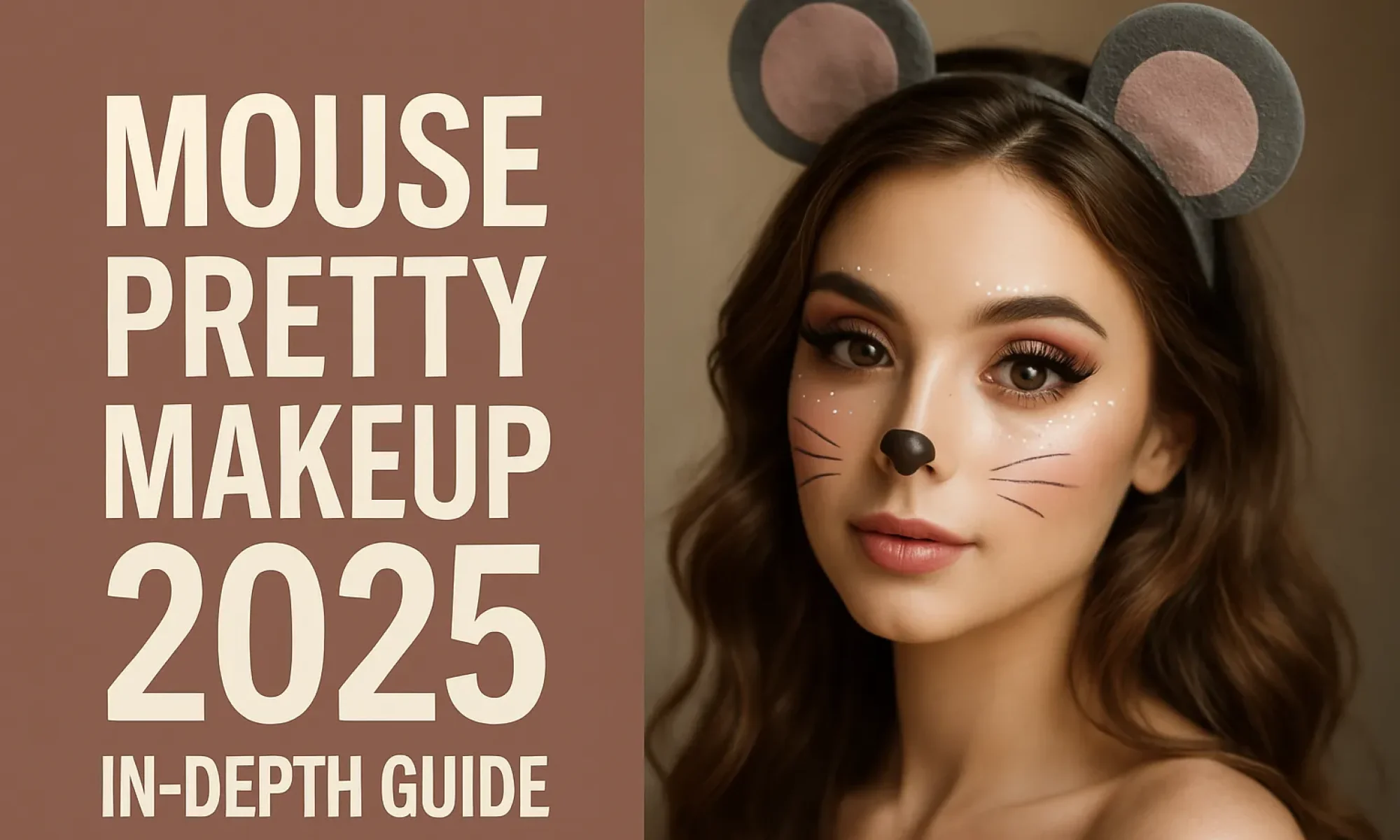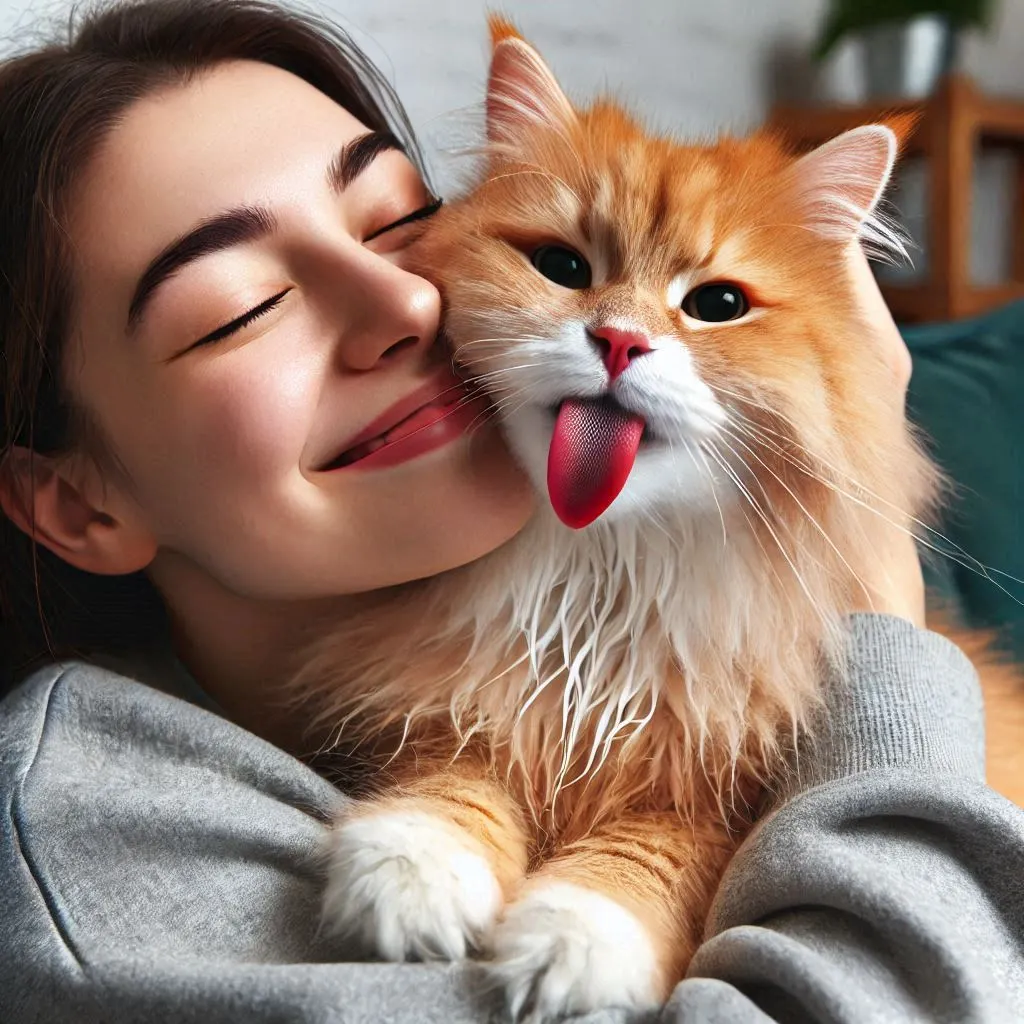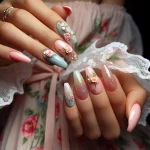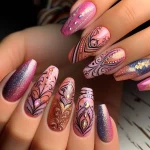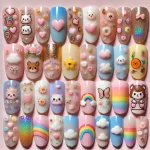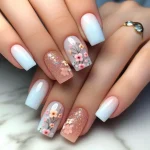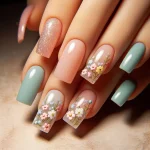- Twisted Tea: The Ultimate 2025 Guide(Kept up to date) - 08/13/2025
- 100 Best Eat & Drink Ultimate 2025 Global List - 08/11/2025
- Top 10 Celsius Drink: The Ultimate 2025 Guide - 08/07/2025
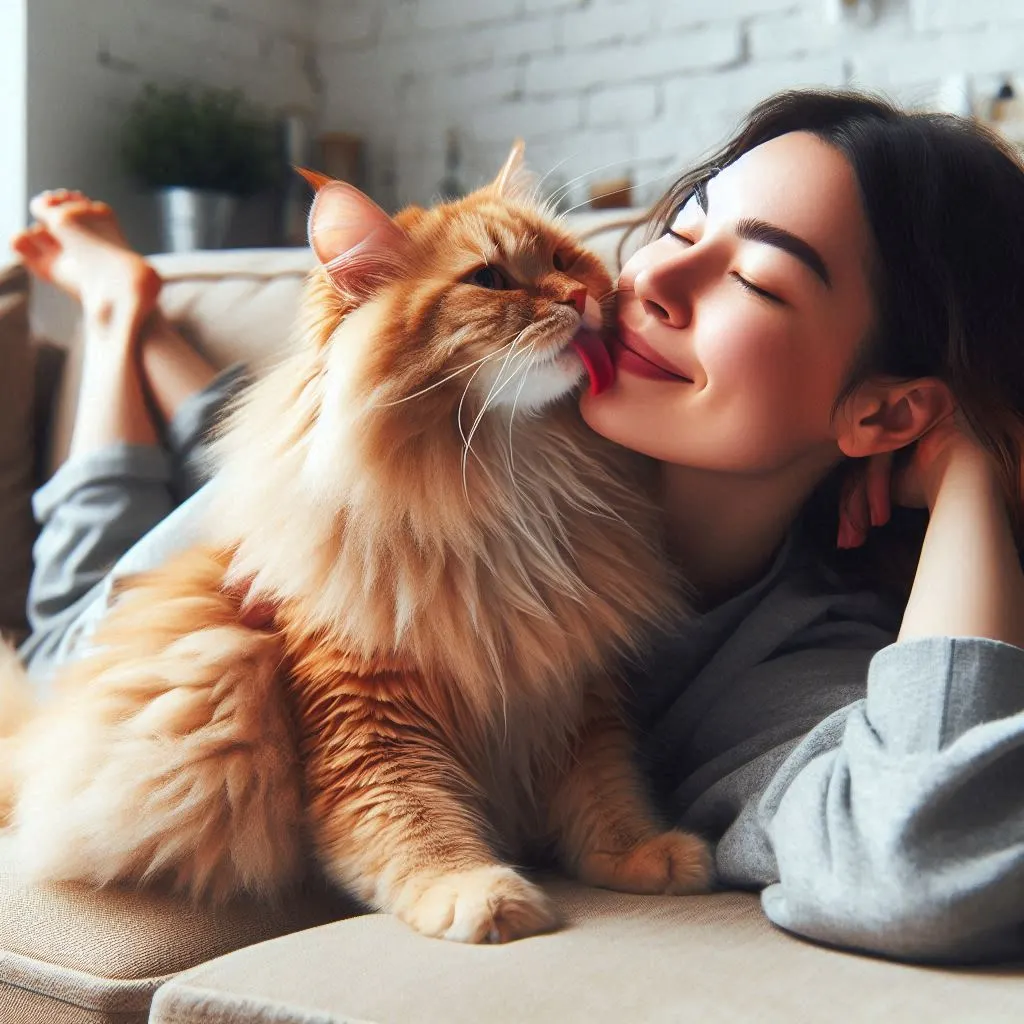
Table of Contents
Why Does My Cat Lick Me?
Cats exhibit a range of fascinating behaviors, with licking being one of the most common and, at times, perplexing actions. Whether it feels like a sign of affection or an oddly abrasive nuzzle, a cat’s licking is often misunderstood. This article delves deeply into the reasons cats lick their owners, providing a detailed understanding backed by scientific studies, expert opinions, and data.
1. Introduction to Cat Licking Behavior
Cats are known for their meticulous grooming habits, dedicating nearly half of their waking hours to self-cleaning. When your cat licks you, this seemingly simple action could mean a variety of things depending on their personality, relationship with you, and environmental factors.
Their tongues, equipped with tiny, backward-facing spines called papillae, are designed for more than just grooming. These spines help remove debris from fur and facilitate drinking, which is why a lick feels like sandpaper.
2. Key Reasons Cats Lick Humans
Affection and Bonding
Cats often lick as a way to show affection. Just as they groom other cats in their social group, they may lick their human companions to express trust and strengthen bonds.
Grooming Instincts
Grooming is instinctive for cats, and when they extend this behavior to you, it might mean they see you as part of their “family.” This is particularly common when you have a scent or residue they want to remove.
| Reason | Description | Frequency in Domestic Cats |
|---|---|---|
| Affection and Bonding | A way to strengthen bonds and express trust. | High |
| Grooming Instincts | Removing unfamiliar scents or substances from their humans. | Moderate |
| Marking You as Territory | Spreading their scent to claim you as part of their space. | High |
| Stress or Anxiety | A coping mechanism to deal with environmental or emotional stress. | Variable |
| Seeking Attention | Using licking as a method to capture human focus or express hunger. | Moderate |
Marking You as Their Territory
Cats have scent glands on their tongues. When they lick you, they transfer their scent to claim you as part of their territory. This territorial behavior is more pronounced in multi-pet households.
Stress or Anxiety
Licking can also indicate stress. If a cat feels anxious, they might lick excessively to self-soothe or comfort themselves by interacting with their owner.
Seeking Attention
Cats are quick learners. If licking successfully gets your attention, they may continue doing it to signal needs like hunger, playtime, or affection.
3. Scientific and Evolutionary Context
Cats’ grooming habits are rooted in their evolutionary history. In the wild, grooming serves vital functions such as:
- Hygiene: Removing dirt and parasites from fur to prevent infections.
- Thermoregulation: Spreading saliva helps regulate body temperature.
- Social Bonding: Grooming within feline groups builds trust and reinforces hierarchy.
Interestingly, studies suggest that domestic cats see their human companions as large, non-threatening cats, which explains the crossover in grooming behavior.
4. Potential Risks of Cat Licking
While generally harmless, there are some risks associated with a cat licking you:
Allergies
Cat saliva contains allergens like Fel d 1. People sensitive to this protein may experience itching, redness, or other allergic reactions.
Zoonotic Diseases
Though rare, diseases such as Bartonella henselae (Cat Scratch Fever) can be transmitted through saliva, especially if it comes into contact with open wounds.
Skin Irritation
Frequent licking can cause mild irritation or dryness, particularly for people with sensitive skin.
5. Managing Excessive Licking Behavior
If your cat’s licking becomes excessive or problematic, consider the following strategies:
- Provide Distractions: Interactive toys and puzzles can redirect their focus.
- Limit Reinforcement: Avoid encouraging licking by ignoring the behavior. Reward them when they stop.
- Offer Calming Aids: Products like pheromone sprays or calming collars can help reduce anxiety.
- Consult a Veterinarian: Persistent licking might indicate an underlying health issue or stressor.
6. Data Insights: A Statistical Look at Cat Behavior
| Behavior | Percentage of Cats Displaying Behavior | Frequency (Daily) |
|---|---|---|
| Licking Humans | 78% | Moderate |
| Excessive Grooming (Self) | 62% | Frequent |
| Grooming Other Animals | 41% | Rare |
| Using Licking for Attention | 36% | Variable |
Source: International Society of Feline Medicine (2022 Study)
7. Frequently Asked Questions
Why does my cat lick me and then bite me?
This behavior is often a form of playful affection or a signal that they’ve had enough interaction. Cats use small nibbles to set boundaries or transition between actions.
Should I be worried if my cat licks me excessively?
Excessive licking can be a sign of stress, anxiety, or health issues. Consult a veterinarian if this behavior seems compulsive or unusual.
Why does my cat lick my face or hair?
Your hair may remind your cat of fur, triggering grooming instincts. Additionally, they may be drawn to the scent of products in your hair.
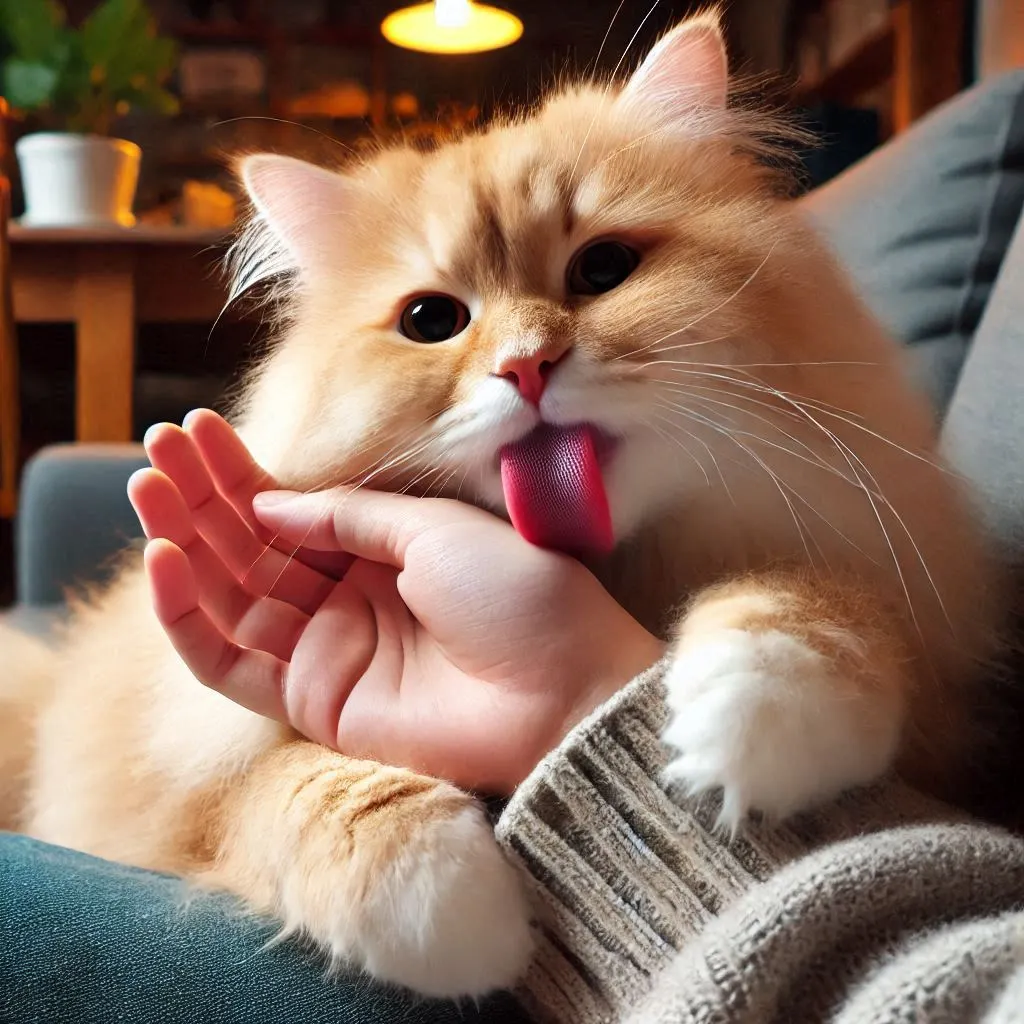
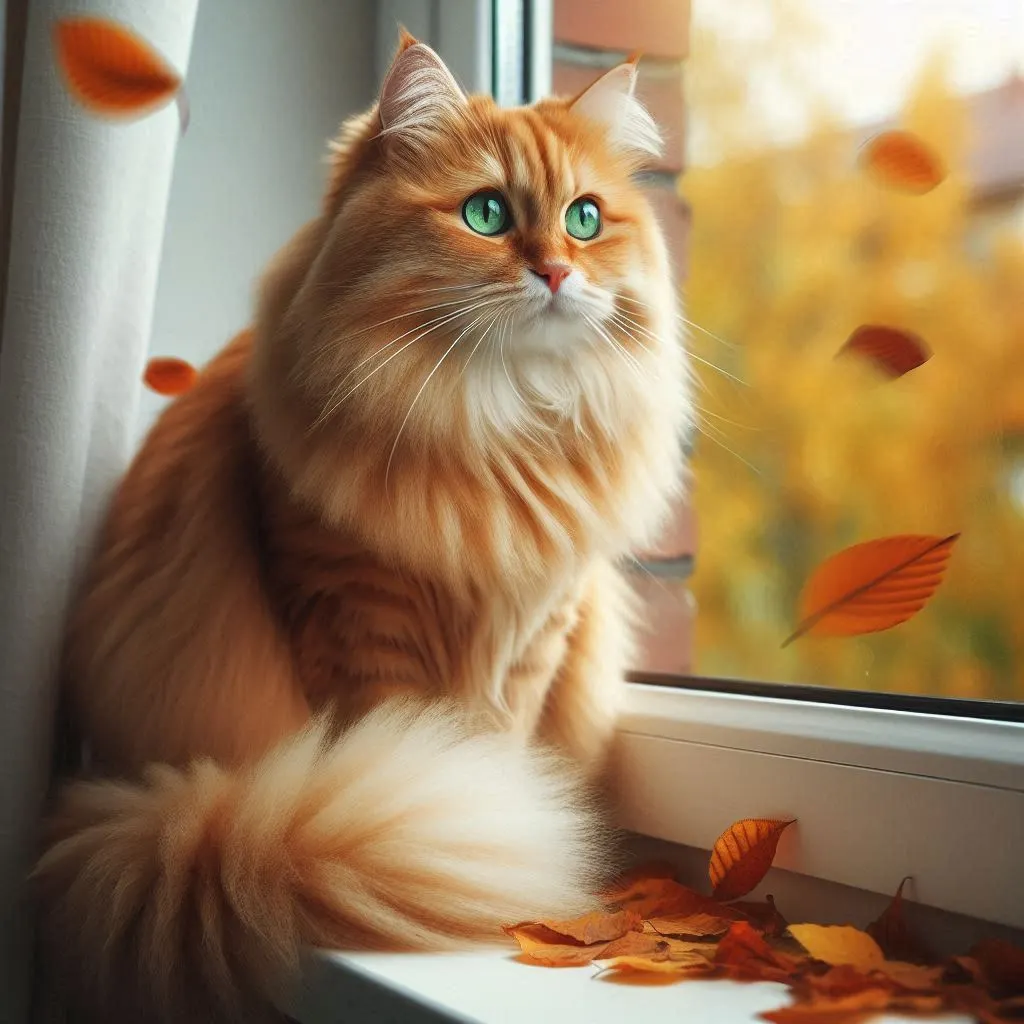
8. Conclusion
When your cat licks you, they’re often expressing trust, affection, or instinctive grooming behaviors. By understanding the context and motivations behind this habit, you can deepen your relationship with your feline companion while managing potential downsides like excessive licking or allergies.
Cats are complex creatures with unique personalities, so their behavior always carries individual nuances. Embrace their quirks, and remember—when your cat licks you, it’s their way of showing they care.
References
- American Veterinary Medical Association
- International Cat Care
- ASPCA – Cat Behavior
- PetMD – Why Does My Cat Lick Me?
- National Geographic – Feline Behavior
Recommended Articles:
What Can I Feed a Stray Cat: 2025 Comprehensive Guide – love a happy home
What to Do if You Find a Stray Dog 2025 – love a happy home
- Best Perfume for Women Top Picks for Every Style 2025
- Amazon Best Sellers in Skin Care Products Top 10 2025
- Perfume: Everything You Need to Know 2025
- Burberry Her Perfume: A Deep Dive 2025
- Ariana Grande Perfume: A Complete Guide 2025
- YSL Perfume: A Legacy of Luxury and Elegance 2025
- Sol de Janeiro Perfume: A Luxurious Fragrance 2025
- Billie Eilish Perfume 2025 In-Depth Guide
- Delina Perfume: A Comprehensive Guide 2025
- Kayali Perfume 2025 In-Depth Guide
- Miss Dior Perfume 2025 In-Depth Guide
- Valentino Perfume 2025 In-Depth Guide
- How to Increase Charisma: Women’s Edition 2025
- Amber: That Captivates the World 2025
- What Color Is Amber 2025?
- Makeup Looks: 2025 Finding Your Unique Style
- Polygel Nails: 2025 Nail Revolution
- Mouse Pretty Makeup 2025 In-Depth Guide
- Builder Gel Nails: 2025 Perfect, Long-Lasting Nails
- Trendy Short Gel Nails: 2025 Style Meets Practicality
- Makeup Bag: 2025 Your Beauty Companion
- Wedding Makeup Looks 2025 In-Depth Guide
- Christmas Makeup Looks: 2024 Glamorous Ideas
- 80s Makeup Looks 2025 In-Depth Guide
- 100 Cute Makeup Looks 2025 In-Depth Guide
- Natural Makeup Looks: 2025 Enhance Your Natural Beauty
- How to Remove Gel Nails Safely at Home
- Ombre Nails: 2024 Gorgeous Manicure Trend
- Autumn Nails Trends: Best Fall Nails
- Cute Fall Nails: Trendy Nail Ideas
- Fall Nails 2024: Trendy Colors, Designs, and Styles
- Summer Nails 2024: Top Trends
- 10 Cute Acrylic Nails Ideas to Elevate Your Look
- Beauty of Square Short Acrylic Nails: A Practical Guide
- Square Short Acrylic Nails: Stylish and Practical
- Cute Short Acrylic Nails Ideas: Trendy Look
- Cute Short Acrylic Nails: Perfect Look
- Best Short Acrylic Nails Ideas(15 Types)
- Trendy Short Acrylic Nails Ideas(13 Types)
- Short Acrylic Nails: Perfect Style with Practicality
- Short Acrylic Nails: Stylish, Durable, and Practical
- Acrylic Nails Ideas: 10 Trendy Designs
- How to Remove Acrylic Nails(1 In-Depth Guide)
- French Tip Nails 2025 In-Depth Guide
- French Tip Nails: A Timeless Style with a Modern Twist
- How to Achieve the Perfect Glazed Donut Nails
Amazon Best Sellers in Clothing & Shoes – Top 10 Must-Have Picks 2025
Let's be real - when you need stylish, comfy clothes without breaking the bank, Amazon's got your back. They're killing it with everything from chill weekend looks to sharp office outfits, all at prices that actually make sense.
We've dug through the bestsellers to bring you:
🔥 The top 10 clothing & shoe picks flying off the virtual shelves
👍 Real customer takeaways (the good, the bad, the "OMG must-have")
💡 How to style each piece for maximum impact
✨ Why these particular items are crushing it in reviews
Whether you're doing a full closet refresh or just need some solid basics, these crowd-pleasers deliver on quality, comfort, and that "I actually want to wear this" factor.
1. Carhartt Men's Loose Fit Heavyweight Short-Sleeve Pocket T-Shirt
Product Overview
Carhartt is known for its durable workwear, and their Men's Loose Fit Heavyweight Short-Sleeve Pocket T-Shirt is no exception. This shirt is designed with 100% cotton to provide a comfortable, breathable, and long-lasting wear. The loose fit adds flexibility for movement, making it a great choice for work or leisure.
Key Features:
- 100% cotton material ensures breathability and comfort
- Loose fit design allows for maximum mobility
- Chest pocket for added utility
- Available in a variety of colors
- Machine washable, making maintenance easy
User Reviews
Customers rave about the sturdy material and the long-lasting durability of this shirt. Many note that it is perfect for daily wear, even in physically demanding jobs. While some buyers found it a bit roomy for a more tailored fit, others appreciate the comfortable and relaxed style.
Style Tips & Outfit Suggestions
This Carhartt t-shirt is perfect for layering under a jacket or hoodie for a casual look. Pair it with jeans, cargo pants, or shorts for an easygoing weekend outfit. It’s ideal for anyone who needs durable, comfortable clothing that withstands tough conditions.
2. Gildan Men's Crew T-Shirts, Multipack, Style G1100
Product Overview
Gildan's Crew T-Shirts Multipack is a cost-effective solution for those in need of basic t-shirts. Known for their comfort and affordability, these t-shirts are made from a cotton blend, ensuring softness and breathability. The moisture-wicking technology keeps you dry, making it suitable for both active and everyday wear.
Key Features:
- Breathable cotton blend fabric for everyday comfort
- Moisture-wicking technology ensures a dry feel throughout the day
- Available in multipacks for added value
- Tag-free design for maximum comfort
- Available in various colors and sizes
User Reviews
Amazon reviewers love the value-for-money aspect of the multipack. Many customers highlight how well these shirts fit and how they can be worn for workouts or as casual tees. A few users mentioned that the shirts might shrink slightly after washing, so opting for a size up could be a good idea.
Style Tips & Outfit Suggestions
These shirts are versatile and can be worn under jackets, sweaters, or button-down shirts for layering. They're perfect for exercise routines, casual outings, or even sleepwear. If you need plain tees for everyday use, Gildan's pack is a reliable choice.
3. Crocs Unisex Adult Classic Clog
Product Overview
Crocs are synonymous with comfort, and their Classic Clog remains one of Amazon's top-selling footwear items. Made with Croslite foam, these clogs are incredibly lightweight, water-resistant, and easy to clean. Ideal for both indoor and outdoor wear, they offer all-day comfort with a stylish design.
Key Features:
- Made from Croslite foam for a cushioned, comfortable feel
- Slip-on style for convenience and quick wear
- Ventilation holes allow breathability
- Water-friendly and easy to clean
- Available in a wide range of colors
User Reviews
Customers love the versatility and comfort of these clogs. Many buyers appreciate how easy they are to slip on and off, making them perfect for beach days, gardening, or even work environments. However, some users find them too wide for narrow feet.
Style Tips & Outfit Suggestions
Pair Crocs with shorts or casual summer outfits for a laid-back style. They're also a great option for poolside or spa visits. Whether you're running errands or relaxing at home, these clogs add a practical and stylish touch to any outfit.
4. Hanes Men's EcoSmart Fleece Hoodie Sweatshirt
Product Overview
Hanes' EcoSmart Fleece Hoodie combines warmth with sustainability. Made with up to 5% recycled polyester, it offers eco-friendly fashion without sacrificing comfort. The fleece lining provides coziness during colder days, while the adjustable drawstring hood adds extra warmth.
Key Features:
- Made with 5% recycled polyester for a sustainable option
- Soft and cozy fleece lining for warmth
- Adjustable drawstring hood for personalized fit
- Ribbed cuffs and hem to lock in warmth
- Machine washable and durable
User Reviews
Reviewers love this hoodie for its eco-conscious materials and affordable price. Many highlight its soft feel and great warmth for colder months. A few customers noted that the sizing might run a little larger, so it’s best to check the size guide before purchasing.
Style Tips & Outfit Suggestions
This hoodie is perfect for layering over a t-shirt or tank top for an athleisure look. Pair it with jeans or sweatpants for a comfortable and stylish outfit. Whether you're heading to the gym or lounging at home, this hoodie is a great addition to your wardrobe.
5. Crocs Kids' Classic Clog
Product Overview
Crocs’ Kids’ Classic Clog is designed to provide the same comfort and durability as the adult version but with a child-friendly fit. The Croslite foam offers lightweight cushioning, while the secure back strap ensures a snug fit.
Key Features:
- Croslite foam for soft, cushioned comfort
- Ventilation holes for breathability
- Adjustable back strap to keep shoes in place
- Easy to clean and maintain
- Available in fun, bright colors for kids
User Reviews
Parents love these clogs for their easy-to-clean nature and comfort. They’re perfect for kids who need to run around but still want to stay comfortable. Many parents report that the back strap ensures a secure fit, preventing the clogs from slipping off during play.
Style Tips & Outfit Suggestions
These clogs are perfect for summer outfits, beach trips, or even casual school days. Pair them with t-shirts, shorts, or dresses for a simple and comfortable look. They're easy to slip on for kids who are always on the go.
6. Nippies Nipple Covers for Women
Product Overview
For women looking for discreet, seamless coverage, the Nippies Nipple Covers are the perfect solution. Made from silicone and featuring medical-grade adhesive, these covers stay in place while remaining invisible under clothing.
Key Features:
- Invisible under clothing—perfect for thin or sheer fabrics
- Reusable up to 25+ times
- Waterproof and sweat-proof for lasting use
- Hypoallergenic adhesive for sensitive skin
- Comes with a travel box for easy storage
User Reviews
Women love the comfort and invisibility these nipple covers offer. Many report that they stay in place well, even during active movements like dancing or exercise. Some users mentioned that they peel off more easily if worn for extended periods, so reapplication may be needed after a long day.
Style Tips & Outfit Suggestions
These nipple covers are ideal for wearing under strapless tops, low-cut dresses, or tight-fitting clothing. They provide the coverage needed without the lines or discomfort of traditional bras.
7. Hanes Men's Cotton Crew Tee Undershirts, Multi-Pack
Product Overview
Hanes' Men's Cotton Crew Tee Undershirts are a wardrobe staple for any man. Made from soft, breathable cotton, these shirts offer all-day comfort. They are designed with moisture-wicking properties, making them perfect for layering or wearing solo.
Key Features:
- Soft and breathable cotton fabric
- Moisture-wicking technology keeps you cool
- Tag-free design for extra comfort
- Available in a multipack for added value
User Reviews
These undershirts are highly rated for their softness and comfort. Many buyers also highlight how great they are for layering or workwear. A few customers reported that the shirts run a bit larger than expected, so be mindful when selecting your size.
Style Tips & Outfit Suggestions
Perfect for layering under dress shirts or sweaters, these undershirts provide extra comfort. They are also great for wearing as casual tees in hot weather or as loungewear around the house.
8. J.VER Men's Dress Shirts
Product Overview
The J.VER Men's Dress Shirt combines comfort and style, offering a stretchy, wrinkle-free option that’s ideal for business casual and formal occasions. Made from a stretch fabric, it moves with you while maintaining a crisp look.
Key Features:
- Wrinkle-free fabric for easy maintenance
- Stretchy material for extra comfort and flexibility
- Classic button-down design for a formal appearance
- Available in a range of colors and patterns
User Reviews
Customers love the comfort and stretch of this shirt, especially for long hours of wear. The wrinkle-free nature is a standout feature, making it a great option for travelers and those who need low-maintenance attire.
Style Tips & Outfit Suggestions
Pair this shirt with dress pants or ** chinos** for a polished work look. You can also layer it under a blazer for formal events. The stretchy material makes it a great choice for those who value comfort without sacrificing style.
9. CRZ YOGA Butterluxe High Waisted Lounge Legging
Product Overview
CRZ YOGA’s Butterluxe High Waisted Leggings are perfect for anyone who enjoys soft, stretchy activewear. Whether you're heading to the gym, doing yoga, or simply lounging at home, these leggings offer the ultimate in comfort and performance.
Key Features:
- Buttery soft fabric that feels amazing on your skin
- High-waisted design for extra tummy control
- Squat-proof for active movements
- Moisture-wicking properties keep you cool during workouts
User Reviews
Reviews highlight the **luxurious feel
** and high waist of these leggings, which provide excellent support and comfort. Many note that the buttery-soft fabric makes them incredibly comfortable to wear all day long.
Style Tips & Outfit Suggestions
These leggings are perfect for workouts, yoga, or loungewear. Pair them with a sports bra, tank top, or oversized t-shirt for a casual yet stylish outfit.
10. Fruit of the Loom Men's Undershirts, Moisture Wicking & Tag-Free
Product Overview
Fruit of the Loom’s Men's Moisture-Wicking Crew Undershirts are ideal for everyday wear or as work undershirts. Made from soft cotton with moisture-wicking technology, these shirts ensure comfort all day long.
Key Features:
- Moisture-wicking technology keeps you dry
- Soft cotton material for ultimate comfort
- Tag-free design for irritation-free wear
- Available in multipacks for added value
User Reviews
Customers consistently praise these shirts for their comfort and affordable pricing. Many note that the shirts stay fresh even after long days, thanks to the moisture-wicking properties.
Style Tips & Outfit Suggestions
Wear these undershirts as a base layer or stand-alone tees on warmer days. They pair perfectly with shorts, jeans, or sweatpants for an effortless look.
🎯 Don’t Miss Out — These Are Reader-Favorite Bestsellers You’ll Love Too 👇
| # | 🎁 Product | 💬 Why It Converts | 🔗 Quick Action |
|---|---|---|---|
| ✅ 1 | Exploding KittensThe Wildly Popular Card Game | 🔥 100,000+ rave reviews🤣 Fun for all ages🎉 #1 party game choice | 👉 Click to Check Price |
| 😂 2 | Funny Dad T-Shirt“You Can’t Scare Me, I Have Kids” | 👕 Viral dad gift🎂 Perfect for birthdays & Father’s Day💬 Gets people laughing instantly | 👉 See It in Action |
| 🕯️ 3 | Luxury Candle Gift SetElegant 1-Wick, Spa Fragrance | 🧘♀️ Instant relaxation🎁 Beautifully boxed for gifting💡 Affordable luxury | 👉 Treat Yourself or Gift Now |
| 🔍 4 | Tile Bluetooth TrackerFind Anything in Seconds | 🛠️ Life-saving tech🧓 Great for parents, teens, travelers📱 Works with your phone | 👉 Never Lose Anything Again |
| 📘 5 | Atomic Habits by James ClearTransform Your Daily Life | 📖 20M+ readers worldwide🔑 Simple steps, big results🎓 Top self-growth book | 👉 Read What Everyone’s Talking About |
✅ Why These Items Sell:
| 💡 Trigger | Example in Table | How It Helps Conversion |
|---|---|---|
| ✅ Social Proof | “100,000+ rave reviews” | Builds trust instantly |
| 🎯 Use Case Clarity | “Great for family game night” | Reduces decision friction |
| 🚀 Action Verbs | “Click to check price” | Encourages immediate action |
| 🔥 Urgency & Emotion | “Don’t miss out” / “Treat yourself” | Triggers impulse buying |
| 🎁 Gifting Potential | “Perfect for birthdays & holidays” | Taps into universal purchase intent |
❤️ Your Click Makes a Difference
Every purchase made through these links helps support this site and keeps great content coming — Thanks!
💬 Why Tip? It’s Not Just Money — It’s Motivation ❤️
| 😊 What You Got | 🎁 What I Get | 🔗 What You Can Do |
|---|---|---|
| ✔️ A smile or laugh | ✔️ A reason to keep creating | 👉 Buy me a coffee ☕️ |
| ✔️ Useful tips, insights, or ideas | ✔️ Proof that this content helps | 👉 Click the support button 💸 |
| ✔️ Fun, relatable content | ✔️ Motivation to go deeper & better | 👉 Leave a tip + kind feedback 🙌 |
| ✔️ Ad-free reading experience | ✔️ A little financial breathing room | 👉 $1 isn’t too little, $10 isn’t too much 🎉 |
| ✔️ A sense of connection | ✔️ The joy of being seen and supported | 👉 Let me know you’re out there 👀 |
❤️ If you made it this far, maybe that’s your sign to support? Every tip matters!
